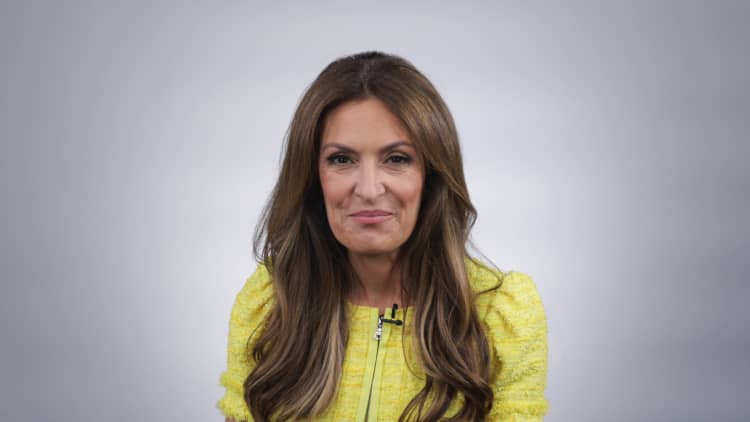Chronological, Functional, Combination. Most experts will tell you that these are the three types of resumes. And while those are the three classic varieties, there are more specific and elevated types of resumes that can land you an interview and even a job offer from a top company. As a job seeker, when you are applying for a role at a highly rated company with stiff competition, you've got to go above the classic and basic — yours must be exceptional.
Here are four types of resume that will not only keep you competitive in today's job market, but they'll get your foot in the door at the Best Places to Interview.
More from Glassdoor:
13 irresistible resume templates to download now
The do's and don'ts of resume editing
This wacky cover letter scored me my dream job
1. Show and prove
Resumes and candidates that "show, don't tell" will stand out to recruiters and hiring manager. In other words, you must break down transferable skills into accomplishments that will really grab a reader's attention instantly. Glassdoor's Senior Manager of Talent Acquisition Jamie Hichens says, "I like to see concrete examples of actual work/projects they've done and accomplishments."
In this type of resume, highlight your skills and amplify them by asking yourself and then including:
- What big challenges did you face in this area?
- What specific actions did you take to overcome them?
- What was the impact of your work?
Statistics, amounts, and metrics can quantify the work you've done and very quickly show your ability to impact a business. Resume expert Anish Majumdar warns, "You must tie down transferable skills with accomplishments, or else it'll just feel like fluff."
To do this, Majumdar suggests that for each relevant position, start with a "Scope Statement" that highlights the bottom-line impact you had, then back it up with concrete, bulleted accomplishments.

2. Clear narrative
The second type of resume that will score you interviews at top companies is one that presents a very clear narrative of your passions, work history and future goals. While many debate the importance of the objective section or mission statement at the top of a resume, experts agree that a resume should flow to reveal your career evolution.
Even if you're just starting out in your career and only have college or high school accomplishments to include, a resume should take a reader on a journey through your work and it should be obvious what kind of person you are and what you value by the time he or she finishes reading.
Senior recruiter Karen Whyte agrees. "Your resume should highlight the requirements of the job to which you are applying. Review the job description and add in areas of experience we may be seeking."
To craft a compelling narrative, be ruthlessly discerning. "Content that does not relate to the job and does not address what qualifications a candidate has for a job can absolutely eliminate a candidate who may have accomplished many of the tasks that job is looking for, but was not articulated in the resume," insists Elizabeth Harrison, Senior Recruitment Partner at Decision Toolbox.
3. Select and project
If you're looking to transition into a different industry, then a selective resume format will probably be the most effective to convey your skills and interests. A selective resume is exactly what it sounds like — one that selectively highlights the skills, experience, and education that pertain to the job you are applying for, not necessarily the job(s) that you've had.
Research job descriptions and resumes of those who are in the field. Align your keywords and phrases with the industry-specific buzzwords. Make it clear that what you have been doing is not what you want to do going forward.
In the section that outlines your professional experience, "only detail jobs or positions that are directly aligned with your target job," says Majumdar. "Everything else can be consolidated into bulleted sections (ex. Professional Experience 2008-2014)."
Recruiters at top companies are game to employ career transitioners if they have a compelling selection of experience and project their desires. Project your intentions by showing off the classes, certificates or any apprenticeships that you've done that have prepared you to step out of one industry and into another.
When in doubt, spell it out. "Next to your current job title, you can always put your aspiration," says Michelle Aikman, NCRW, Co-founder and Director of Adventure Learning of Cerno, suggesting that you add, "aspiring to be a manager" next to your current position or in your professional summary. "That's a quick way to communicate that this is where you are now and this is where you want to go. Just don't hand them a resume that says you want their job."

4. Culture fit
Gone are the days when recruiters only wanted to see a list of impressive skills from a potential hire. Now top companies, like those on the Best Places to Interview list, want candidates who are looking for a meaningful job. A resume that plays up culture and personality paints a fuller, more robust picture of you that invites engagement and bonding.
"Employers are not interested in 'vanilla' candidates and genuinely appreciate when applicants take the time to highlight the reasons they are a perfect fit for the position so they can more easily spot these individuals and move them to the next stage of screening," says Michele Moore, certified career coach at Ama La Vida. Because of that, "you should absolutely tailor your resume to suit the company, industry, location and other parameters of the role."
To craft this type of resume, research the company to understand what its values are, its mission statement and its value system. Use the key words and phrases you spot on a company's Glassdoor profile or About Us page to inform your approach. Then, don't hesitate to reveal in your resume the ways in which your values align with theirs.
"Think about the stories that lie behind your biggest career accomplishments. Get beyond the metrics and take a more holistic approach," says Majumdar. "Are there places where you can integrate some culture fit information?" Weave in details of your own volunteer work throughout your resume or in a section about your hobbies. Include a bullet or two in the professional summary section about your work with employee resource groups or social good initiatives. And remember, a cover letter is a perfect place to show culture fit, to demonstrate that you're just as interested in the company's vision as you are in the specific role.
Like this story? Like CNBC Make It on Facebook.
Don't miss: NASA to teenage Hillary Clinton: 'Sorry, little girl, we don't accept women into the space program'


